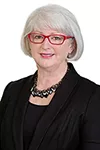The journey towards critical reflection
- Home
- Latest news
- We hear you
- The journey towards critical reflection

ACECQA’s National Education Leader, Rhonda Livingstone provides insight into National Quality Framework topics of interest.
Educators reflect on their actions every day. Reflection is the thinking educators do as they are working with a child, while also observing the environment and planning what they will do next.
Donald Schon, internationally recognised author of The Reflective Practitioner, believes we engage in two types of reflection - reflection in action and reflection on action. Educators reflect while practicing, in action, making decisions about extending children’s learning, about the routines they are engaged in and the What next? for their program. Thinking on our feet and making decisions is part of an educator’s daily practice.
Our daily reflections in action deepen when we become more purposeful in our engagement – Schon’s reflection on action. An educator may think about something that has happened; think about why it happened; and what they might do differently next time. Reflecting on action takes time; it’s purposeful and can be an internal process or shared within teams.
Critical reflection takes Schon’s model a step further. Critical reflection involves exploring multiple perspectives, making clear the links between theory and practice, and making purposeful changes to practice to improve children’s outcomes. Over time, with practice, critical reflection becomes a continuous process where educators embed talking about theory in practice and practicing theory in their work. Sonya Shoptaugh, an expert on early childhood education and creativity, believes that:
'To enter into a style of teaching which is based on questioning what we’re doing and why, on listening to children, on thinking about how theory is translated into practice and how practice informs theory, is to enter into a way of working where professional development takes place day after day.'
The Early Years Learning Framework (p. 13) and Framework for School Age Care (pp. 11–12) have a set of reflective questions to guide educators and identify ‘ongoing learning and reflective practice’ as a key principle underpinning practice. Both frameworks explain that ‘critical reflection involves closely examining all aspects of events and experiences from different perspectives’.
Here are some resources to support educators as they further develop their critical reflection skills.
Further reading and resources
Belonging, Being and Becoming, The Early Years Learning Framework for Australia
My Time Our Place, Framework for School Age Care in Australia
Victorian Early Years Learning and Development Framework
ACECQA – Developing a culture of learning through reflective practice
Critical Reflection, Paper by Melinda Miller, Lecturer at Queensland University of Technology
ACECQA video – Continuous improvement in practice
References
Curtis, D. and Carter, M. (2008) Learning together with young children: A curriculum framework for reflective teachers, St Paul, MN: Redleaf Press.
Leave a comment